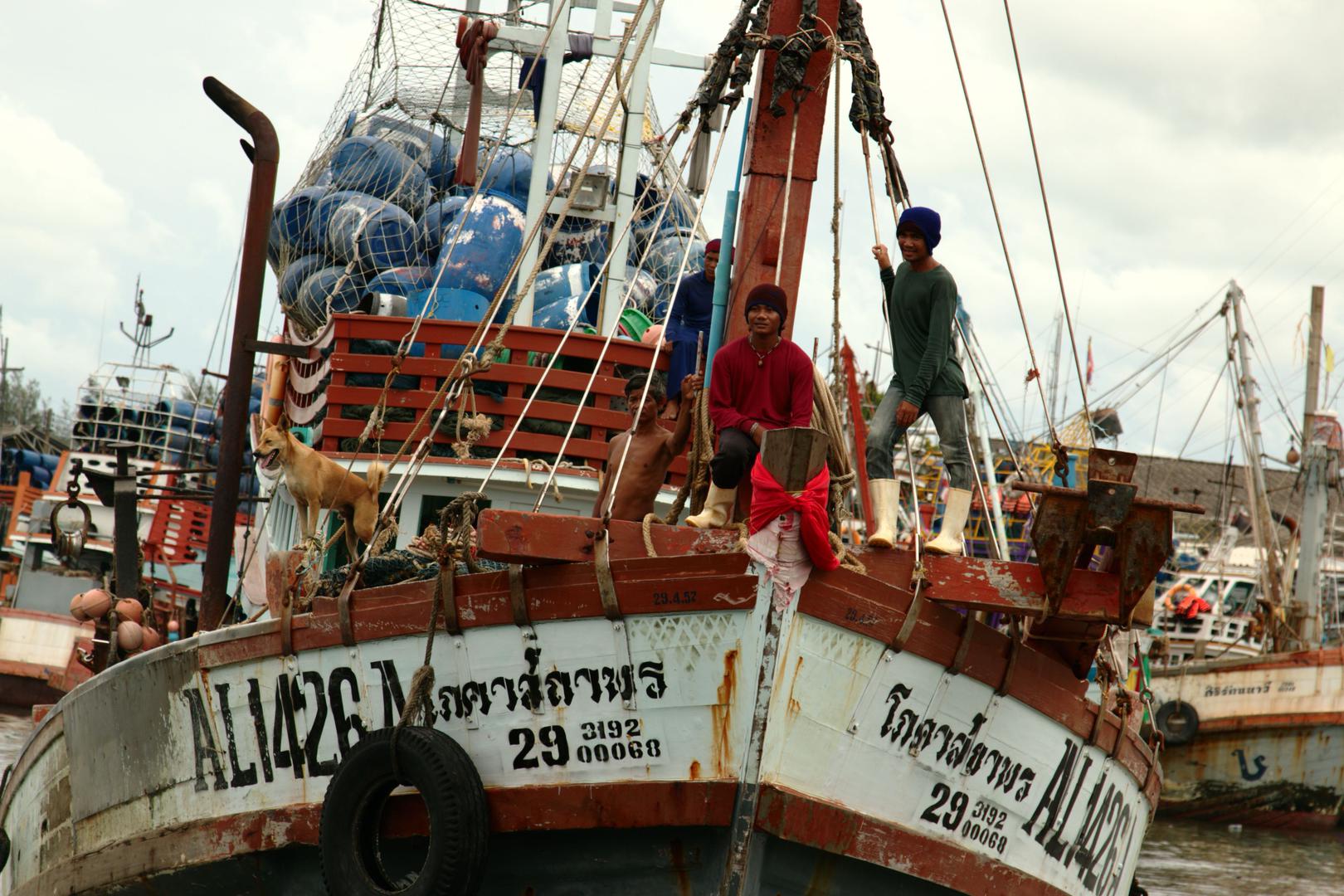By: Katherine Hewitt
Impunity Watch Reporter, Asia
BANGKOK, Thailand – Despite reforms in the fishing industry of Thailand, there has been some resistance regarding the acceptance of new regulations. Migrant workers from neighboring countries continue to be trafficked into the fishing industry.

There are restrictions regarding movement between employers, delays in payment, withholdings of contracts and workers information, and reductions in wages to levels below minimum wage. Employers keep employment cards, known as ‘pink cards’, to prevent laborers from leaving. Interviews also told of 16-hour work days. One man reported leaving the port at 6 am and returning to land after sunrise the next morning, only to sort the fish.
Thailand has yet to create an effective monitoring and inspection protocol for the fishing industry. In contrast to investigations carried out by Human Rights Watch, Thai investigations declared no cases of forced labor or poor working conditions. Human Rights Watch conducted interviews in every major fishing port in Thailand. Within 34 groups, there were 20 forced labor cases. Another investigation carried out by the International Justice Mission reported that more than 1/3 of fishers are trafficking victims.
The representative of Thailand’s National Fisheries Association, Mongkol Sukchararoenkana, noted in an interview, “There is no exploitation like in the past. The consumers of the USA and Europe can eat our seafood. Everything is fine. Every problem has been fixed by the current government. The boats are correct and the workers are correct. There is no more forced labor.”
The Ministry of Foreign Affairs commented, “… there has been significant improvement in the labour situation in the fishing industry in many areas. Disappointedly, the Report of HRW contains many outdated references… [and] does not take into consideration the current progress and efforts made by Thailand in solving labor problems.”
Human Rights Watch acknowledges the attempts as improvements but notes that numbers have not changed from 2012, when 1 in 5 fishers worked in some variation of forced labor conditions.
For more information, please see:
Human Rights Watch – Thailand: Forced Labor, Trafficking Persist in Fishing Fleets – 23 January 2018
CNN – Abuse of migrant workers ‘rampant’ in Thai fishing fleets, rights group says – 25 January 2018